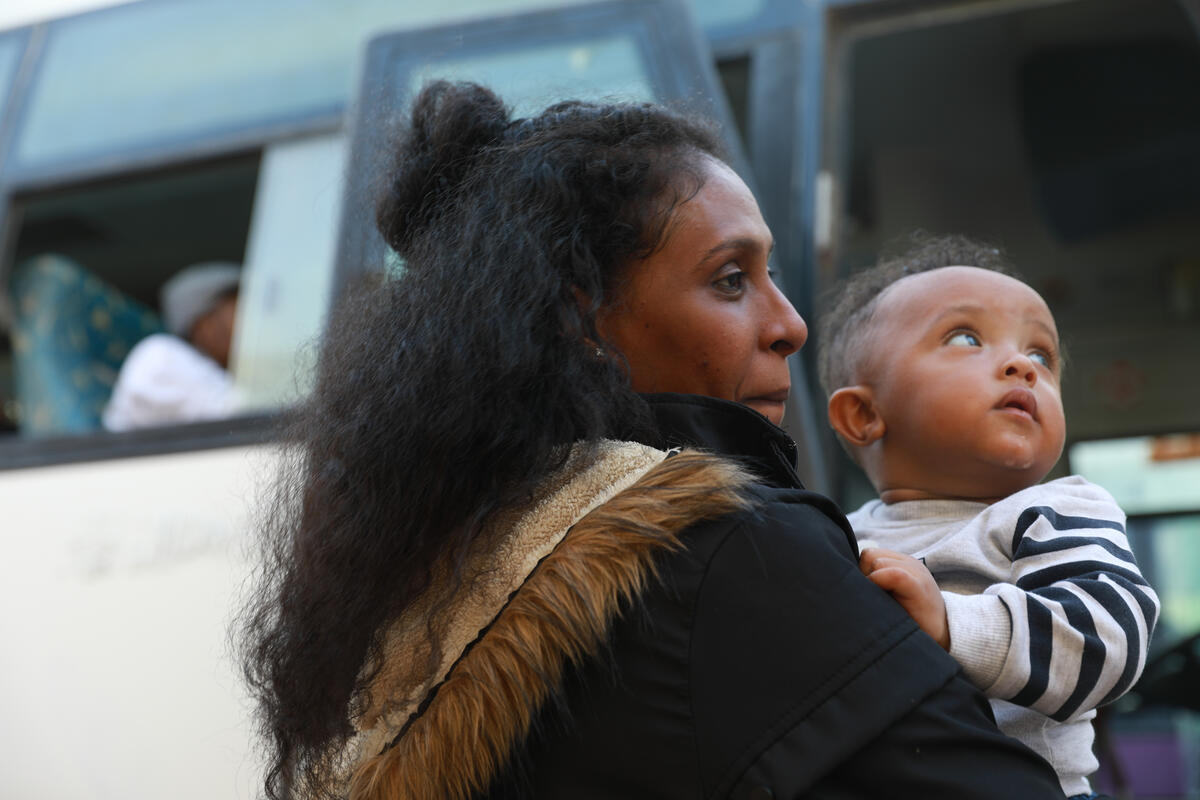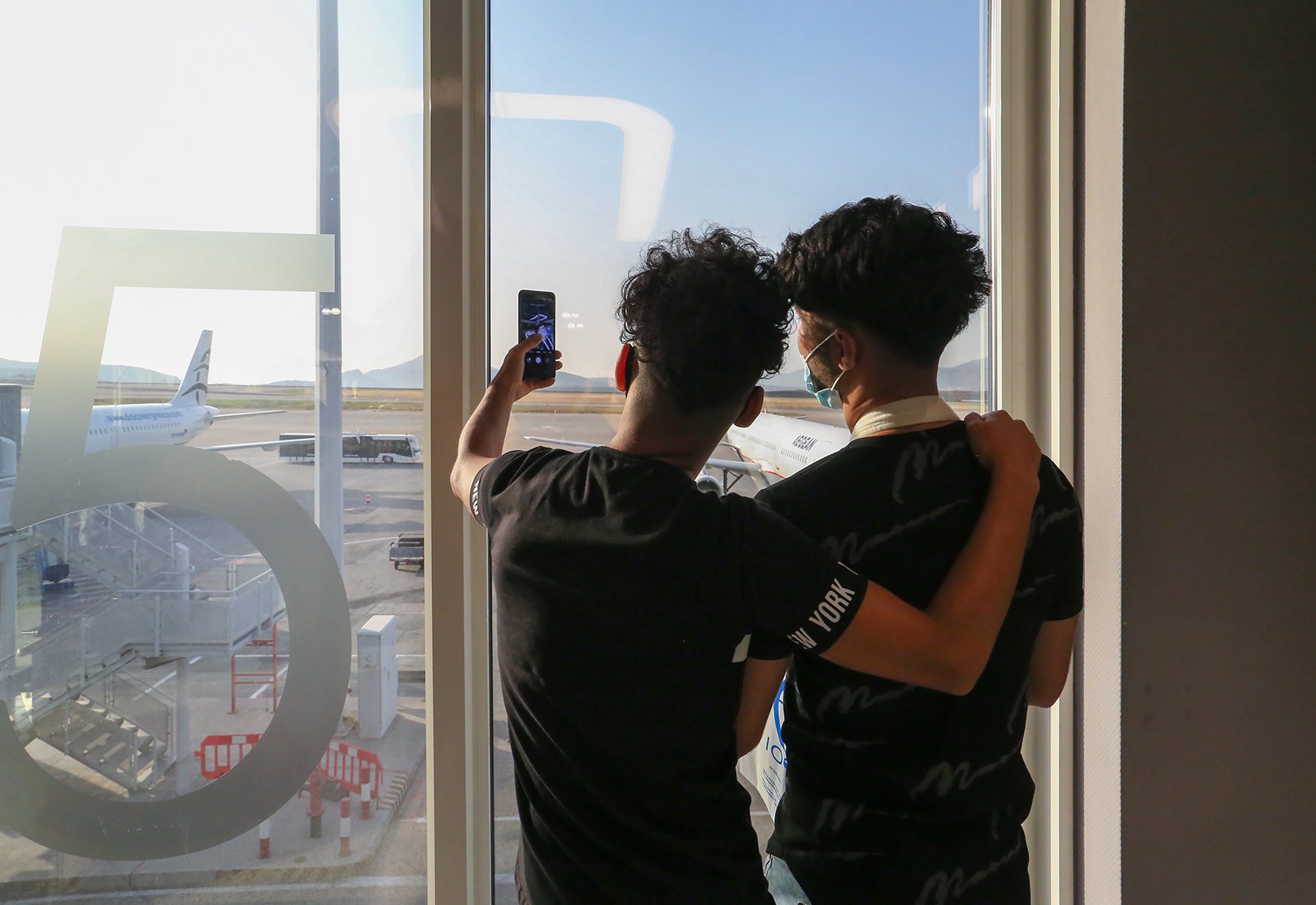UNHCR relocates first Somali refugees from Dadaab to Kakuma
UNHCR relocates first Somali refugees from Dadaab to Kakuma
We have started relocating the first of some 12,900 Somali refugees from the overcrowded Dadaab refugee complex in north-eastern Kenya to Kakuma camp in the north-west. The first 311 refugees arrived in Kakuma on this weekend (15 August) after a three day journey by road. Another convoy of 13 buses with 520 refugees left Dadaab for Kakuma yesterday. The movement of the refugees is being handled by the International Organization for Migration (IOM).
The relocation of the refugees from Dadaab to Kakuma is part of a multi- phase plan to alleviate the chronic overcrowding in the eighteen year old Dadaab refugee camps, which currently host more than three times the population they were initially designed to accommodate. The move is scheduled to be completed by the end of October, before the start of the rainy season. In addition, in order to improve the living conditions of the refugees in Dadaab, UNHCR is working on upgrading of the aging water and sanitation systems, increasing the health services and providing adequate shelter and nutrition as well as providing more funding to support the local communities neighbouring the camps.
Upon arrival in Kakuma, the refugees were provided with blankets, sleeping mats and kitchen sets, before being transferred to their new accommodation.
The escalating violence and humanitarian crisis in Somalia has driven thousands of Somalis out of their homes, many of whom have fled to the neighbouring and nearby countries. Since January, over 43,000 Somali refugees have sought refuge in the Dadaab camps, bringing the total number of refugees in the three camps to a record 289,500.
At the same time, we are seriously concerned about the deteriorating security situation in Somalia. The continued abductions, killing and intimidation of aid workers and the pillaging of humanitarian facilities and supplies, is making it increasingly difficult to reach and access the needy population. The situation is having an adverse impact on delivery of aid to internally displaced people (IDPs) who are in dire need of humanitarian assistance.
UNHCR provides protection and assistance to more than 510,000 refugees in the nearby countries of Kenya, Yemen, Ethiopia, Djibouti and Uganda. There are some 1.3 million IDPs in Somalia, and an estimated 3.2 million people who are in urgent need of humanitarian assistance.








